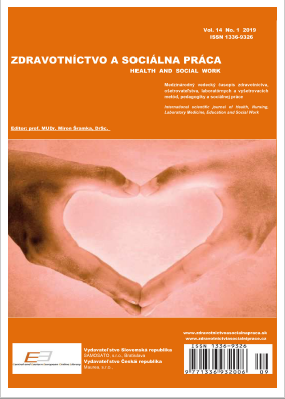VEKOM PODMIENENÉ ZMENY POVRCHU OKA A EPIBULBÁRNE NÁDORY
AGE RELATED CHANGES OF THE EYE SURFACE AND EPIBULBAR TUMORS
Author(s): Alena Furdová, Karolína Kapitánová, Juraj SekáčSubject(s): Evaluation research, Health and medicine and law
Published by: SAMOSATO, s. r. o., Bratislava, Slovensko - MAUREA, s. r. o., Plzeň, Česká republika
Keywords: epibulbar; tumor; dry eye syndroma; cyclosporine A; conjunctival lesion;
Summary/Abstract: Introduction: Degenerative changes in the surface of the eye and its adnexa are disease that usually affect both sides (eyes) simultaneously. They appear after the age over forty of life and show signs of so-called "dry eye". These symptoms are particularly pronounced in patients who have epibulbar lesions and cancer in the conjunctiva region. Methods: A group of patients who were treated for dry eye problems while having diagnosed benign or malignant conjunctival tumors (non-melanocyte and melanocyte tumors, papillomas, carcinomas, lymphoma) before and after surgery. Results: A group of 54 patients, mean age 42 years. There were 26 (48%) men and 28 (52%) women. All patients received treatment for "dry eye" problems and had a conjunctival tumor in the epibulbar conjunctiva. Of the total number in 45 (83%) patients were benign tumors and in 9 (17%) patients were malignant tumors after surgery. Indications for treatment for malignant tumor were: recurrent epibulbar carcinoma, dysplastic melanocytic nevus, malignant melanoma of the conjunctiva and epibulbar MALT lymphoma. Conclusion: Tear film function is limited in patients with epibulbar tumors and in patients, who suffer from dry eye syndrome. In addition to lubrication, local administration of cyclosporin A is also used.
Journal: International Journal of Health, New Technologies and Social Work
- Issue Year: 14/2019
- Issue No: 1
- Page Range: 16-19
- Page Count: 4
- Language: Slovak

